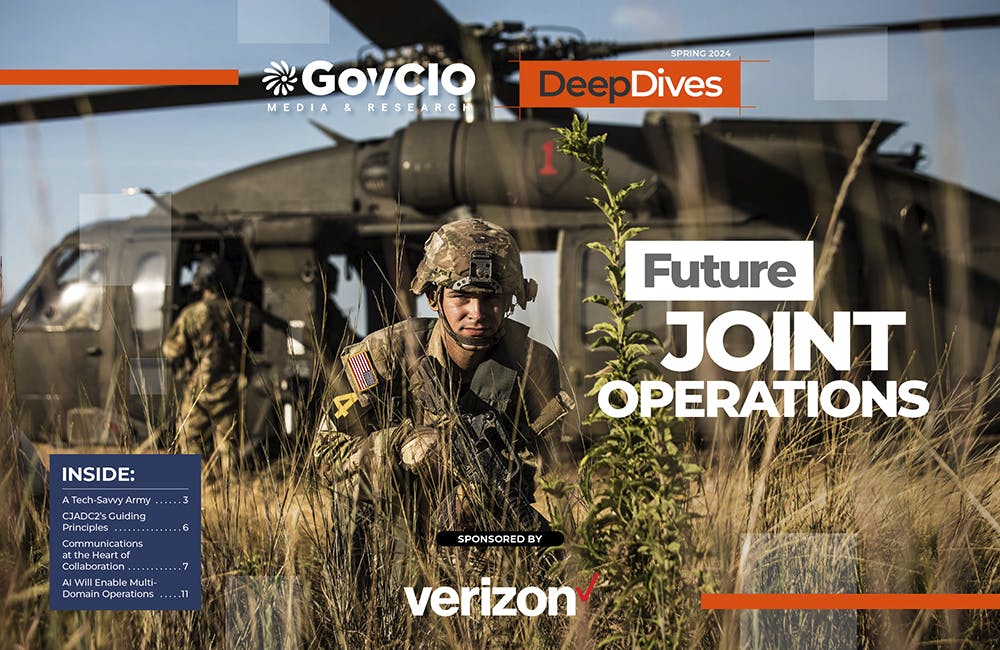New FDA AI Tool is Advancing Health Care
A new tool shows promise in increasing success rates of detecting cancer, and a new data strategy shows promise for future medical devices.

The Food and Drug Administration has launched a new artificial intelligence tool for detecting cancer screening, the latest example of the agency’s further innovation around artificial intelligence and machine learning for health care applications.
The new tool, called GI Genius, is the first to use AI based on machine learning to help clinicians detect lesions in the colon in real time during a colonoscopy. The system was able to identify lab-confirmed adenomas or carcinomas in over 55% of patients, compared to 42% via a standard colonoscopy, said Dr. Matthew Diamond, chief medical officer for digital health at FDA’s Center for Devices and Radiological Health.
“AI has the potential to transform health care to better assist health care providers and improve patient care,” Diamond told GovernmentCIO Media & Research. “When AI is combined with traditional screenings or surveillance methods, it could help find problems early on, when they may be easier to treat.”
To support artificial intelligence development, FDA is undertaking initiatives to standardize its data, said CDRH Associate Director for National Device Surveillance Dr. Gregory Pappas at an ATARC virtual event. Furthermore, FDA is working to develop new regulatory frameworks to better leverage real-world performance data, Diamond said.
By monitoring real-world performance, the agency can deliver more robust total product lifecycle-based oversight of medical devices, which are among the technologies benefitting from AI right now.
In its recent action plan for “software as a medical device,” FDA outlined a multi-pronged approach regarding oversight of AI and machine learning-based medical software, including advancing real-world performance pilots and creating other regulatory efforts around AI algorithms.
“FDA is committed to promoting a patient-centered approach including transparency to all users, as well as good machine-learning practice, the development of regulatory science methodologies to assess medical device algorithm bias and robustness, and the increased use of real-world performance monitoring of medical devices,” Diamond said.
In a Technology Modernization Action Plan and subsequent Data Modernization Action Plan, FDA has also put forth strategies for modernizing its technology to further innovate in AI around health care applications.
“Our data plan will leverage the foundations laid by TMAP — a modern, cloud-forward technical infrastructure, a product-oriented approach and enhanced collaboration. The two action plans will go hand-in-hand to realize the full potential and value of data and technology for the FDA and its stakeholders,” Diamond said.
As technology becomes more sophisticated, data becomes even more important to enable FDA to understand how medical products are performing, as well as quickly address and tackle emerging public health threats.
Since the onset of COVID-19, FDA has accelerated the development and adoption of digital health technologies. Diamond said that FDA will continue to explore how these tools can help aid in the diagnosis, care and remote monitoring of patients.
“We will continue to learn and iterate to advance regulatory science for digital health advancement in accordance with emerging evidence and stakeholder feedback, remaining committed to its goal of supporting patient-centered innovations that are safe and effective,” Diamond said.
This is a carousel with manually rotating slides. Use Next and Previous buttons to navigate or jump to a slide with the slide dots
-

IRS Tax Filing Pilot Part of Digital-First Customer Experience Plan
Many taxpayers increasingly expect flexible, easy and self-directed digital interactions, agency leaders said.
5m read -

Federal Agencies Make the Case for Quantum
Amid development of emerging technologies like AI and machine learning, leaders see promise in quantum computing.
6m read -

Cyber Incident Reporting Regulation Takes Shape
An upcoming CISA rule aims to harmonize cyber incident reporting requirements for critical infrastructure entities.
5m read -

Connectivity Drives Future of Defense
The Defense Department is strategizing new operating concepts ahead of future joint force operations.
8m read








